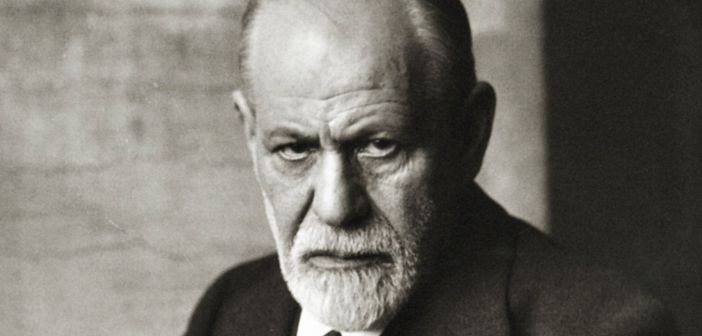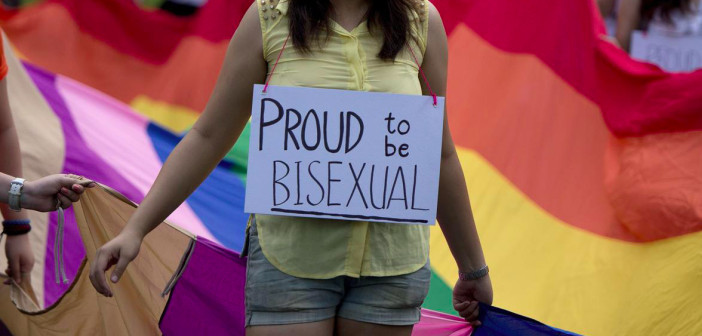Bi, Bi, Baby | On Labelling your Sexuality
The blood vessels inside the female genitalia dilate when the female is aroused. This dilation increases blood flow which causes the outer area of the vagina to become engorged and tense. This tension is then released through stimulation in the form of a pleasurable orgasm.
My own personal engorgement is not picky about whom it reacts to in terms of gender.
In my early youth, I responded to this in a healthy manner by having consensual varying degrees of sexual interaction with men and women, and boy did we stimulate that engorgement to its eventual release. I also fell in love with both men and women. Some loved me back, some didn’t, at least not always with the same type of love. My adolescence took place just at the dawn of social media and I lived in a bubble (called Ireland) in which it never even occurred to me to define my sexuality. I just did what my dilating vagina told me to do and man, is she bossy. As I got older, however, I became more acutely aware of people’s demand for labels and immediately identifiable categories of human sexuality.
“Yeah but which do you like better though, if you had to choose one?”
“Why would I have to choose one?”
“Yeah but if you had to?”
This type of circular conversation is reflective of the idea that heteronormative behaviour is the one that represents a true reality – one that supposedly, according to some people, I secretly wished I fit into. The closer your identity fits into this particular framework, the more acceptable it is to a lot of people. If you can’t fit into this definition, one will be imposed on you, and even then some of those labels will not be acceptable to many.
Bisexual was the first label that I found to fit me more accurately. However, instead of having the effect of solidifying my identity, it made me feel self-conscious and even guilty, as though by having these desires I was cheating or even lying to myself. This is of course mostly Sigmund Freud and the Catholic church’s fault. Cheers lads.

There is no escaping Freud, his ideas are embedded into the fabric of western culture. He stands lurking at every corner of self-analysis, terrifying you with your worst fears about who you truly are. And, really, if you think about it, according to Freud I want to sleep with and kill both my parents, making me some sort of psycho-sexual orphan which does actually reflect how it can feel being bisexual. You can feel like you don’t belong to any one group or ‘family.’ You don’t really fit within any immediately identifiable behaviour that is seen as ‘legitimate’ by any one group. But this is not a pleasant or accurate way to be defined.
The Catholic church obviously is a cult that would never have me as a member anyway but their discriminatory and oppressive attitude towards sexuality has helped mould the shape of the general Irish psyche, and I have one of those. So, being a product of this type of psychological landscape, I experienced degrees of shame as well as negative judgement from people around me. This experience of discrimination when compared with many people’s was minute, but still, it was there.[pullquote]If you can’t fit into this accepted definition, one will be imposed on you, and even then some of those labels will not be acceptable to many.[/pullquote]
If your teenage years are for ‘experimenting’ with your sexual identity my hypothesis was this: both men and women will be enjoyable to have sexual intercourse with. And by then having sexual intercourse with both men and women, this hypothesis was confirmed. It was not complicated. It never occurred to me that this was something to be ashamed of until later. I then discovered the definition of the term bisexual and realised that that was what fit me best. This was also fine. However I began to notice how people treated the word. It was often dismissed as a joke or non-existent or described people who were just ‘in denial’ about actually being gay.
Having experienced and enjoyed myself first, and defined later (which I suppose is many people’s experience), I began to shy away from this aspect of my identity. I didn’t want people telling me that who I was was not legitimate or, even sometimes outside of a religious sense, was immoral, shameful and unfair. These feelings and this experience became more pronounced once I entered ‘the college years.’
I have probably been in love about 6 times divided amongst 4 people from one gender and 2 from another. It doesn’t matter which. The intensity of my feelings for one of these people I believe led to the dissolution of what was a strong friendship. The feelings were never acknowledged or defined in this way but I was worried that they were what drove the other person away which is completely understandable on their part. However, the ending of this friendship broke my heart a little. It occurred around the same time I had started to self-categorise under the particular bisexual label and so I associated this dissolution with being a result of this aspect of my identity.

This, combined with people’s general attitudes as I have described them, led to a period of attempted repression. And although I do think repression has its uses (if you’re a standup comedian for example, it can be useful to forget some sets), generally speaking it leads to some type of degeneration with regards to your mental health. In college, when I should have been blossoming with this new sexual self-awareness, I instead repressed it and began to feel what I had never felt before with regards to any of my non-hetero sexual interactions. I felt shame. I associated these feelings with the death of a valued friendship mixed with a frustrating refusal on some people’s parts to even acknowledge my sexual identity as acceptable or legitimate. It felt like a flaw, and not merely a healthy and honest expression of my natural desires.[pullquote]‘Generation snowflake’ is a negative spin on what is really the evolution of a more sophisticated form of empathy that can only improve people’s quality of life.[/pullquote]
Labels, of course, can also be incredibly useful. They can help us understand and relate to people better. They can help in identifying how people’s needs differ and therefore, in what ways they may need help or how they perhaps could be hurt by some things that would not affect others. ‘Generation snowflake’ is a negative spin on what is really the evolution of a more sophisticated form of empathy that can only improve people’s quality of life.
This aspect of my identity has always been inherent within me, which is not something I say to justify anything. Why would I need to explain that I was born this way? If I chose to feel these things would that make it unacceptable? By saying ‘I/she/he/they was/were born this way’ you are describing an excuse for their behaviour. By thinking you have to provide an excuse for who they are implies that it is something that needs to be excused.
I am quite tired of feeling that I have to excuse myself, or worse, even prove my own existence. The dilation of those blood vessels is entirely my own concern and no matter what anybody else says the blood is not going to start flowing in any other direction, baby.
